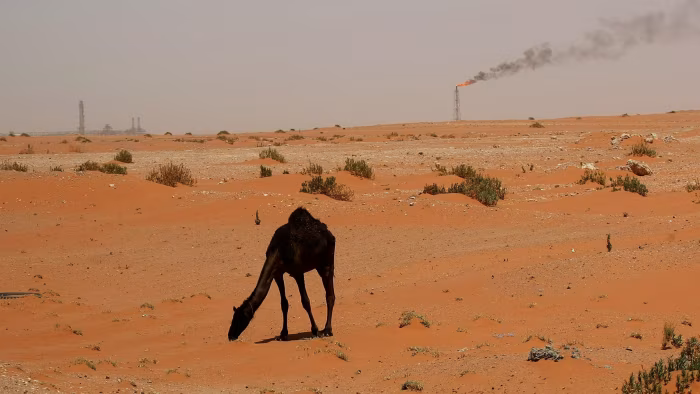ABU DHABI (Realist English). Two of the Middle East’s most powerful oil companies — Saudi Aramco and Abu Dhabi National Oil Company (Adnoc) — are scaling back their multi-billion dollar acquisition campaigns amid falling oil prices and growing pressure to prioritize dividends over expansion.
Together, the Gulf giants have announced more than $60bn in deals over the past three years, targeting gas, chemicals, and lubricants in an effort to diversify beyond crude. But sources close to the companies say both are now slowing their merger and acquisition activities to reassess strategy in light of weakening market conditions.
Benchmark oil prices have declined from over $80 per barrel in January to around $67 this week, with analysts warning of further pressure due to oversupply. Saudi Arabia has already indicated it will “take stock” of public spending, as oil revenue slips below fiscal break-even levels for many Gulf states.
A senior energy banker said government shareholders had instructed both companies to “focus more on dividend generation and less on aggressive growth.”
While some targeted deals — especially in gas — are still in motion, neither Aramco nor Adnoc is expected to maintain the previous pace of dealmaking. Notably, both companies have opted not to bid for Castrol, BP’s lubricants business currently on the market.
Saudi Aramco, the world’s largest crude producer, has completed at least $8bn in deals over the past three years, including a 10% stake in Rongsheng Petrochemical, the purchase of MidOcean LNG, the acquisition of Valvoline’s lubricants arm, and an investment in Horse Powertrain. The company is also exploring participation in Woodside Energy’s Louisiana LNG project and expanding LNG deliveries to India.
Chief executive Amin Nasser said Aramco would continue to improve spending efficiency, while noting the company’s financial resilience allows it to invest counter-cyclically.
Adnoc has been even more aggressive, with over $52bn in ongoing deals, including a $18.7bn offer for Santos, a $15.5bn bid for Covestro, and the creation of Borouge Group International, a $60bn chemicals giant in which it would hold a 47% stake.
To drive international expansion, Adnoc has launched XRG, an internal investment platform that declared plans to become a top-three global chemicals player and a top-five player in gas. It has also identified the United States as a key market for future investment, particularly in the event of Donald Trump’s second term.
Still, people familiar with the company’s strategy say the scale of recent deals necessitates a period of digesting and integrating acquisitions. “They’ve built a lot of momentum,” one executive said. “Now they need to pause and consolidate.”
A prominent energy lawyer compared the recent spree to China’s state-owned M&A push in the early 2010s. “Like Beijing back then, Aramco and Adnoc are now reassessing. They don’t want to be seen as the dumb money.”
Both companies declined to comment.
If sustained, this strategic recalibration could cool global energy M&A activity, reducing the role of Gulf capital in shaping the next phase of the industry’s transition.


















